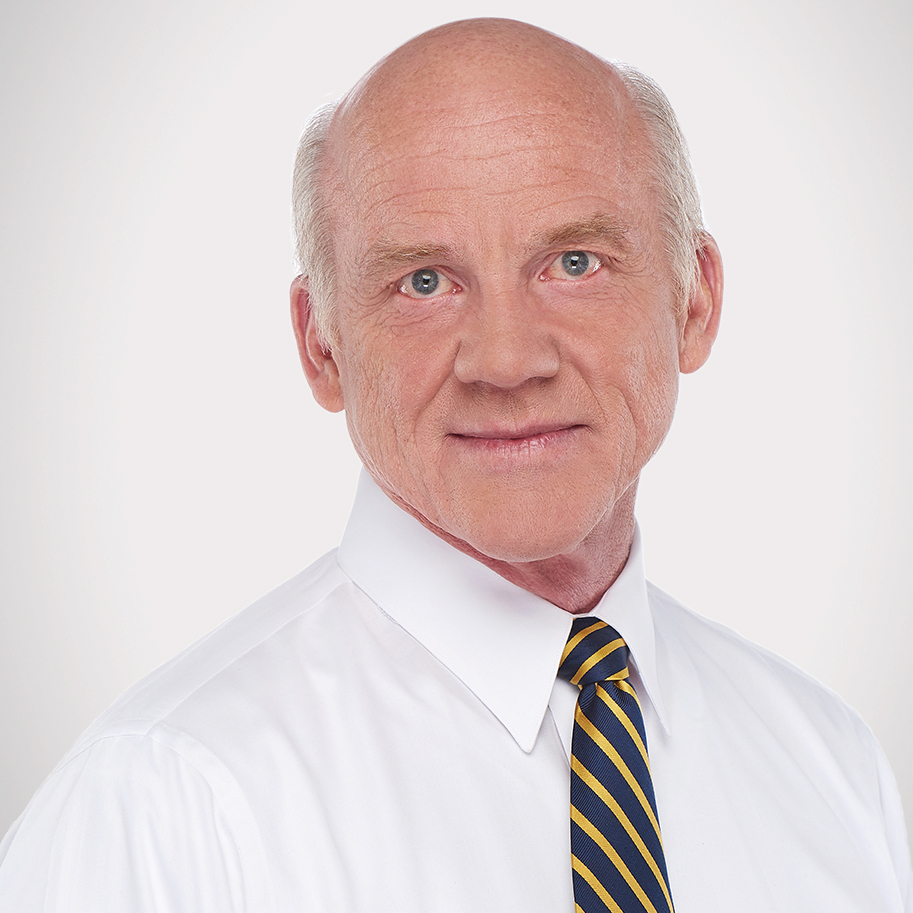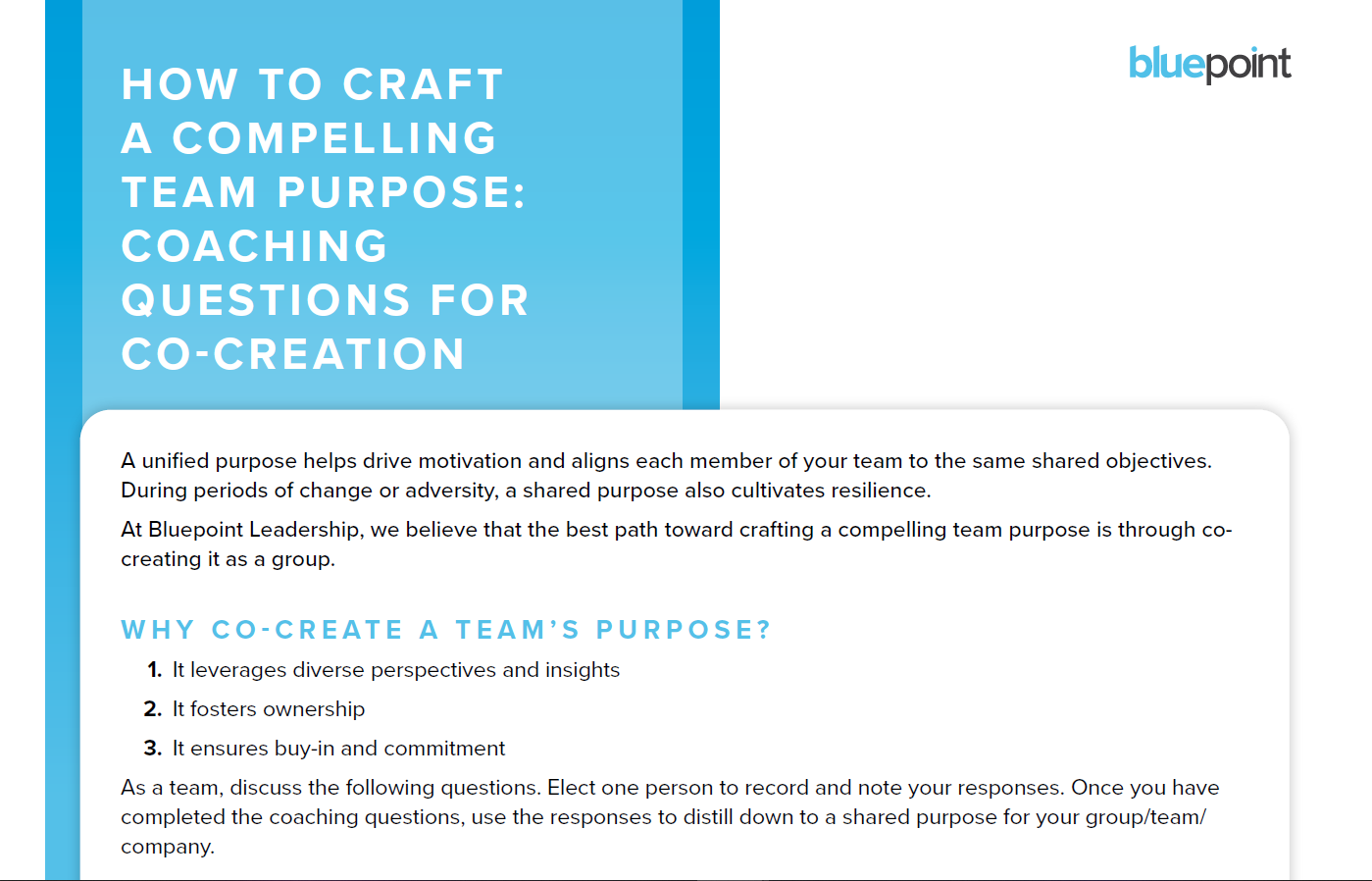What if a single, courageous decision on your part could put your organization immediately on the road to a culture of personal accountability and high performance? How? Make coaching everyone’s business!
Nothing compares to coaching when it comes to helping people perform at their best and accelerate their careers. Not re-engineering, not team building, not quality programs. Coaching works because it is focused on the individual rather than on the organization and its processes. Even mediocre coaching can produce remarkable results. Individuals become energized (or re-energized) about their work, take full ownership of their performance and their careers, find and rejuvenate long-lost talents and make major shifts in their contribution levels. You can easily see this for yourself. Go and speak to anyone in your organization who has significantly increased their performance and I will guarantee that you will find a coach involved somewhere. He or she is always there.
What Would Happen if Everyone in Your Organization Had a Personal Coach?
The results would be astounding. However, coaching is an expensive, time-intensive process and it is impractical to provide every organization member with an external coach. Many progressive organizations are making great strides in equipping their managers to be skilled coaches through programs like our Leader as Coach Workshop. The problem is that today’s organizations are extremely frenetic and managers face near limitless demands on their time. Even the most well-meaning and committed managers have enough time to coach only a portion of their team members.
Why Everyone Can Coach
Coaching is not the exclusive domain of senior leaders and external professional coaches. Everyone can coach. Every person in the organization can sit with another person and challenge them to lift their game, encourage them to see new possibilities, confront them with their own potential, affirm their many talents and remind them of how great it feels to do extraordinary work. The problem is that most leaders still see coaching as advising others, providing feedback, teaching skills and solving problems. These are all good managerial practices but they do not constitute coaching. When well-coached, people will solve their own problems, seize their own opportunities and chart their own futures.
How Does This Work?
The process is surprisingly straightforward but does not come without investment on your part. You need to be personally involved every step of the way.
- Strongly encourage everyone in the organization to invite another organization member to coach them. Anyone can coach anyone else. (Yes, I appreciate that some will not get invited and their feelings will be hurt. These people should thank you. Since we really need to earn the right to coach others, this is very valuable feedback, even if a bit painful.)
- Dive into the process yourself. Invite someone in the organization to coach you, and insist that all senior leaders do the same. (You will undoubtedly notice that “insist” is a bit stronger than “encourage”.)
- Anyone can coach anyone. A good coach is a good coach. Don’t waste HR’s time in the futile pursuit of “good matches” or “chemistry”. (And yes, you can coach your boss.)
- Ask people to take on only one coaching assignment at a time. This will ensure that each person will receive the full attention of their coach and will spread the coaching opportunities (and load) throughout the organization. (Please note that nothing in this program absolves leaders from being consistently coach-like with all of their team members.)
- Provide the following loose but important guidelines: Coaching pairs should meet in person or via telephone for 30-60 minutes (this is lots of time for great coaching to happen) every 2 to 3 weeks (this will keep the momentum going) for 4 to 6 months (this is enough time to develop new performance standards and create new habits).
- At the end of every coaching engagement, encourage people to invite a different organization member to coach them. (Yes, there is always another, higher level of performance possible and a good coach will not rest until it is found.)
- Equip everyone in your organization with the skills and approaches necessary to immediately coach at a high level. If you find the right program, this will only take one day, two at the most.
Unfortunately, most coach training programs focus an inordinate amount of attention on interpersonal skills such as active listening and providing feedback. While these are important, it is even more important that your people participate in a highly experiential training program that introduces them to the potency of coaching, provides them opportunities to practice real coaching and receive direct feedback on the same.
You will also want to make sure that they are fully equipped with the tools necessary to:
- Ask questions that pierce through closely-held assumptions and mental models,
- Constructively confront unhelpful behaviors, practices and attitudes,
- Affirm strengths, talents and abilities even if rarely employed, and
- Share fresh perspectives no matter how radical.
Every major survey of employee engagement tells us the same thing: most of our people, even our top performers, are leaving their best at the door each morning. They are simply not bringing their very best talents and energy to their work. Help them do this. Give them a coach. Stand back and watch. Coaching is everyone’s business…and can change the entire game! Whether you lead a team, a division or the entire organization, you can make coaching everyone’s business, and you can do this without a lot of consultants and other external resources.
About The Author

Gregg Thompson
Gregg Thompson is a keynote speaker, author and executive leadership coach. As a much-in-demand speaker, Gregg leads his audiences on interactive, highly-engaging learning journeys that are both educational and entertaining. He dares audiences to abandon many of their closest-held beliefs about leadership and to explore new ways of seeing, relating to and influencing others. He confronts audiences with their own biases, judgments and attitudes, and challenges them to replace these with fresh new perspectives and practices. He vividly demonstrates how leaders can make a major shift in their personal impact and use their natural strengths to master the art of leadership. Gregg is the author of The Master Coach written for leaders who understand the impact of coaching on performance and career acceleration. The book is an invitation to leaders who want to make a significant shift in their attitudes, values and behaviors and become more coach-like in all of their daily interactions and conversations.
Related Resources
Subscribe to newsletter
Subscribe to our newsletter today and receive innovative, insightful and thought provoking resources (videos, webinars and articles) all effective tools for developing leadership talent.
Connect with Us Today!
This is a gated resource. Contact sales at info@bluepointleadership.com for more information or reach out here: Contact Us
This is a member-only resource. Contact sales at info@bluepointleadership.com for more information.





